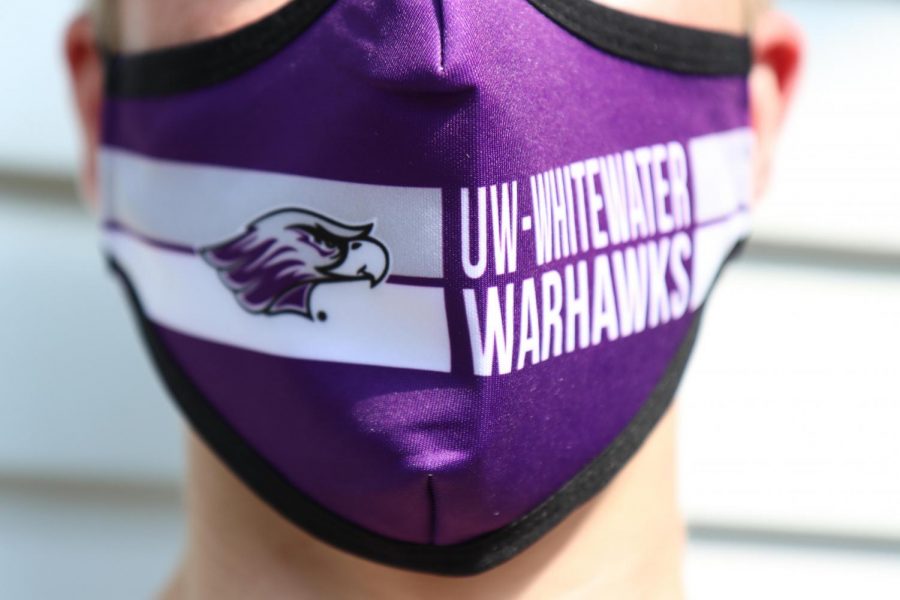Common Council meeting about COVID-19
Meeting Briefs
Photographer Dane Sheehan takes a self portrait wearing the new UW-Whitewater Warhawks mask.
September 6, 2020
The Whitewater Common Council met Tuesday, Sept. 1 to discuss concerns of students throwing parties off campus during the pandemic.
The meeting began with members describing the partying they saw the previous weekend. The main concern is keeping students safe on and off campus. The problem that the council faces is that the university can regulate student actions on campus, but not regarding what they participate in while off campus.
The main guidance offered by the university is the Warhawk Covenant. It is a type of guideline for campus members to follow, ensuring they are creating a safe learning environment. It encourages people to wear masks, follow social distancing protocols and wash their hands often.
“We encourage people to follow the covenant. Outside of our campus we have no authority other than the covenant,” said Chancellor Dwight Watson. “We are testing and sharing our results – not to scare you all, but to make you aware.”
Working together to help enforce the COVID-19 rules off campus is what both the city of Whitewater and the university want to do. Keeping the university running and keeping COVID-19 cases low were the main concerns of the council.
“We have to have spring splash cancelled. The ordinance needs to shut down gatherings that are 12-20 people. Plain and simple. We need to be strict and need to be quick,” said Common Council member Jim Allen.
Allen also expressed his concerns about bars and restaurants being open. Some suggested using landlords where students are staying to encourage students to limit gatherings. The university plans on testing their students to monitor and prevent the growth of cases, however, there is still the concern for students that are not living on campus.
The discussion turned into a debate about whether the council should take action now or wait for COVID-19 cases to increase.
“Waiting for it to get worse is too late,” said Vice Chancellor Grace Crickette.
The university recognizes the need to take action right away, and has invested a lot of funds toward COVID-19 tests and prevention such as masks and signage. The problem the university faces is getting students to listen.
The council members agreed that they should have done something before the students came into town and moved in on or off campus. They are now looking into creating an ordinance to take more action and urge students to take precautions on and off campus. An ordinance would affect all citizens though, and not just students, which some council members were reluctant to enforce.
The town hall plans on having a special meeting Wednesday Sept. 9 at 6:30 p.m. to look into taking action.














